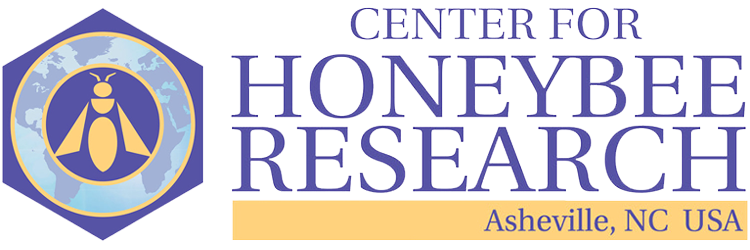The Center for Honeybee Research cares about all pollinators and we educate the public about the importance of pollinator gardens, using less chemicals in their yards and providing a habitat for all insects. We feel it’s important to help people realize the insect apocalypse is real; as we are seeing a decline in the 20,000 varieties of bees, butterflies, moths and beetles. Although many insects, birds and bats offer pollination, the honeybee has become extremely important to the agricultural industry.
While the honeybee is not native to North America, their introduction in 1622, has changed our landscape into the gardening paradise we know today. The honeybee has become responsible for pollinating $20 billion worth of crops in the United States, which include apples, cranberries, melons and broccoli. Some crops, including blueberries and cherries are 90 percent dependent on honeybee pollination. And one crop, almonds, depends entirely on the honeybee for pollination during bloom time. In addition, honeybees provide a number of valuable non-food products, such as beeswax used in cleaning and beauty products and propolis for its health benefits.
The honeybees’ importance goes far beyond agriculture. They also pollinate more than 16 percent of the flowering plant species, ensuring that we’ll have blooms in our gardens; this in turn attracts other pollinators. Of course, there is also the honey. According to the National Honey Board, United States honey production in 2022 totaled 125 million pounds.
As a honeybee gathers nectar from flowers to make honey to feed their larvae, they are in turn pollinating flowers. The flowers help the honeybees survive and thrive, and in return, honeybees spread more flowers. It is a perfect example of a symbiotic relationship in nature. In the honeybee’s act of survival, they are beautifying the Earth by spreading flowers and sustaining wildlife – as well as helping humans and other animals and insects live their best life by pollinating the crops we use everyday.
What you can do to help honeybees thrive? Click here to find out.
What we are doing to help the honeybees? Follow this link to learn more.

